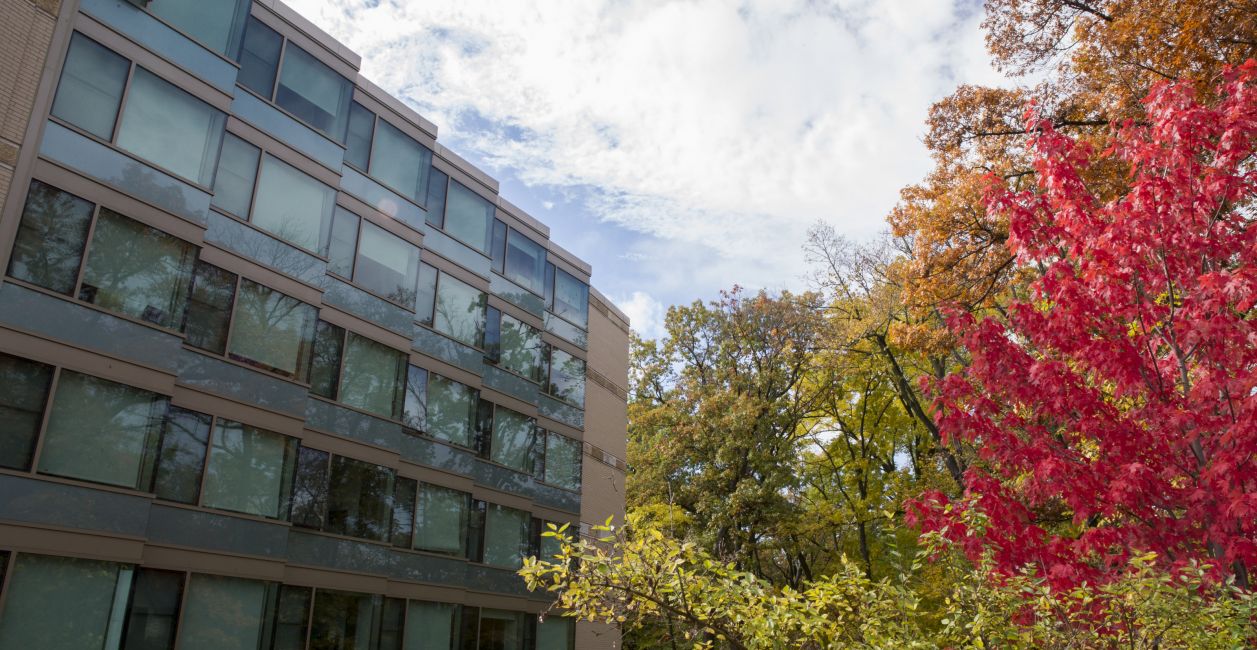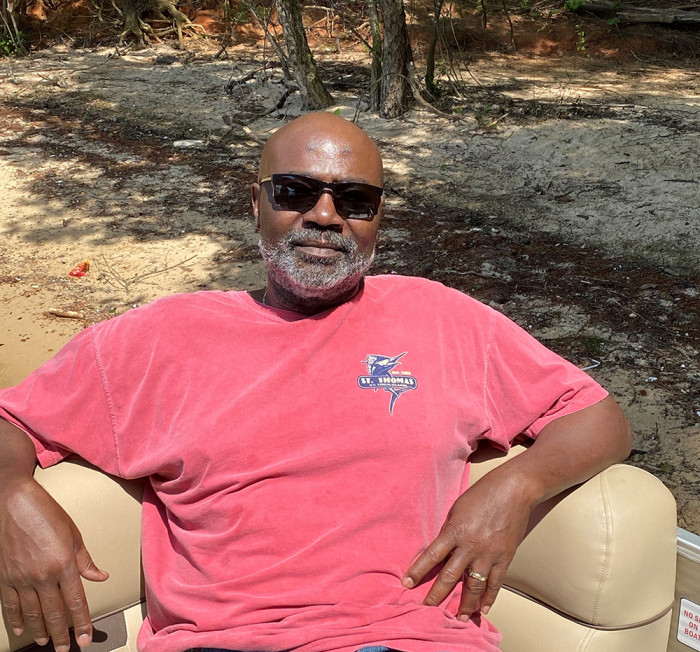
Cecil Jennings

Cecil Jennings
Class Year
’81
Current home
Athens, Ga.
Major(s)
Biology, Natural Science, and Conservation
Current Position
Research Biologist/Adjunct Professor
Cecil Jennings came to Carthage from the Virgin Islands and graduated in 1981 with degrees in biology, natural science, and conservation. He was an active member of the football team and received a Carthage Activity Grant for his participation in the sport.
In his current position as a Unit Leader for the U.S. Geological Survey’s Georgia Cooperative Fish and Wildlife Research Unit, Cecil provides oversight for daily operations as well as direction for other federal scientists. He works in cooperation with the Georgia Department of Natural Resources to develop research and training programs in response to the U.S. Geological Survey.
Cecil’s main area of research is fish, and he helps direct research related to fish population ecology, biology, and management. Cecil also serves as a major advisor to Ph.D.- and M.S.–level students and teaches graduate-level, fishery-related courses at the University of Georgia.
While initially a physical education major, Cecil credits the natural resources professors at Carthage for introducing him to the Biology, Natural Science, and Conservation Departments at Carthage, and for their guidance and help during and after graduation.
What have you enjoyed most about your career?
“Contributing to the conservation of our natural resources (especially fishery resources), including training the next generation of conservation scientists. I also enjoy the variety of tasks associated with my job. From designing and conducting research projects/experiments, mentoring graduate students and technical staff, teaching, giving presentations at scientific conferences, writing project reports, and scientific articles. There is a fair amount of travel to places mundane, interesting, and exotic, and I enjoy that as well.”
How did Carthage prepare you?
“I was really challenged (professionally and personally) at Carthage. Learning to rise to any challenge has served me well. I’m from the Caribbean originally, so I experienced culture shock on many levels. The professors in the Biology Department were demanding but nurturing. They prepared me well for graduate training, which led to my career as a research scientist.”
How has your liberal arts education benefitted you?
“I believe the liberal arts education made me a more rounded student than some of the graduate school peers who attended specialized colleges. Most were versed in discipline-specific knowledge, but I was comfortable discussing history, religion, sociology, and so on. I attribute this well-rounded education to the diversity of the non-major required courses necessary to complete a Carthage degree requirement.”
Why did you choose Carthage?
“Carthage offered me the opportunity to play college football and I jumped at it. I figured the academics would be first-rate, but the opportunity to play football sealed the deal for me.”
What opportunities were made possible because of your Carthage experience?
“Because of Carthage, I was able to attend graduate school at Mississippi State University. One of my professors at MSU also was a Carthage alum who had the same undergrad mentor as I did. Networking brought us together. Certainly, Carthage’s academic preparation was paramount, but that, coupled with learning the value of networking, provided many other possibilities that led to a successful and rewarding career.”
What Carthage professors played a part in your success and how?
“Professors Evelyn Crump, Walter Suter, Herman Ogren, and Ralf Tiefel were the most influential to me. They constituted the biology faculty at the time, and I had classes with each. I maintained a life-long friendship with Profs. Crump and Suter, and we corresponded regularly. They would offer encouragement and a kick in the pants as needed. I appreciated that.”
What role have the values in Carthage's mission, "Seeking Truth, Building Strength, Inspiring Service — Together" played in your life?
“They have led to a very successful career built on collaborative research. I learned many things at Carthage, both inside and outside the classroom. They prepared me well for creating my comfort zone and being happy with my life and work, regardless of where I find myself.”
What's your favorite Carthage memory?
“I have fond memories of ‘borrowing’ lunchroom trays to slide down the hill on Alford Park Drive across from campus right after big snowstorms, of calling Carl’s Pizza or Pizza Tech for late-night pizza, and learning about cultural differences between my native Virgin Islands and other places where students were from. The high expectations of Carthage professors prepared me well for working and excelling in challenging work environments.”
Tips for current Carthage students?
“Get outside your comfort zone. You are more adaptable than you realize. Also, keep an open mind. Sometimes opportunities arise that we have not considered, and they can lead to wonderful things. For example, I was accepted to Carthage as a physical education major because I wanted to be a football coach, but a chance encounter with the natural resource professor took me down a very different path than the one I imagined initially.”
